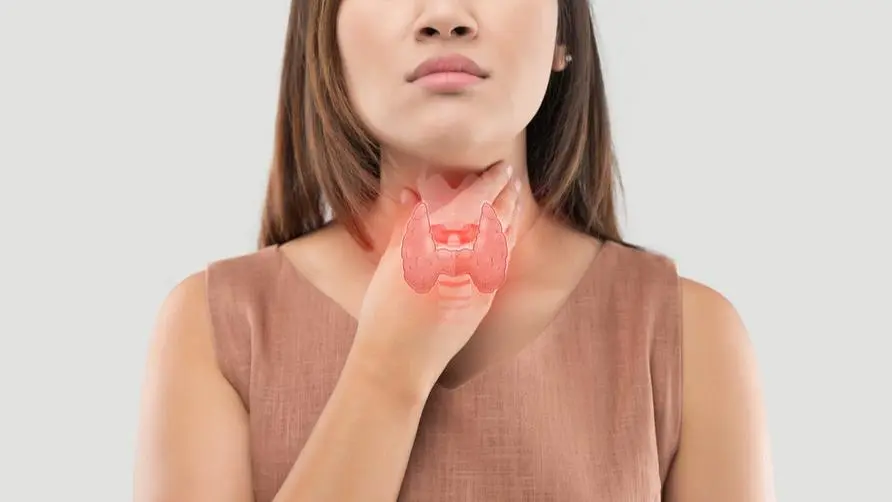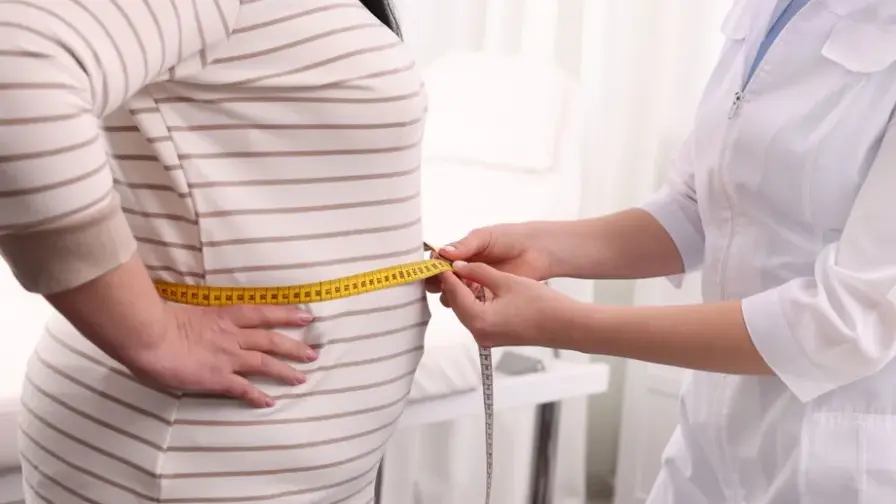Can't find the reason for chills, lethargy, and irregular menstruation? "7 signs" may be a warning sign of hypothyroidism

Being overweight, getting tired easily, feeling cold, accompanied by muscle pain and hair loss, could this be a sign of “low thyroid function”? Rebecca Breslow, MD, Yale University and physician at Brigham and Women’s Hospital, pointed out that there are many causes of low thyroid function, such as autoimmune diseases, previous treatment for hyperthyroidism, radiation therapy or taking specific drugs, etc. Women with a family history of hypothyroidism, women under 60 years old, or those who have been pregnant or gave birth in the past 6 months are high-risk groups for hypothyroidism.
Dr. Breslow said that a lack of “thyroxine” secreted by the thyroid gland will directly affect the way the body uses or stores energy. When the concentration of thyroid hormone is low, the metabolic rate will slow down and affect various organs in the body. If you belong to the above-mentioned high-risk group and have frequently experienced the following 7 conditions recently, you must seek medical treatment immediately:
1. The weight remains high
Dr. Breslow pointed out that the reasons for weight loss failure are quite complex and may be caused by the inability to achieve a caloric deficit in daily diet or insufficient exercise. However, if you are still unable to lose weight despite active weight loss, it may be caused by hypothyroidism. “Physiological Reviews” has reported that low thyroxine is associated with slower metabolism and reduced resting calorie expenditure.
“Journal of Thyroid Research” also pointed out that thyroxine has the function of regulating appetite, so hypothyroidism may cause increased hunger and make people eat more food.
2. Feeling tired all the time
Fatigue can be caused by stress, lack of sleep, medication, or physical exertion. Moderate rest can often help restore strength. However, Dr. Breslow reminds that if the tiredness persists for a long time and adequate sleep does not relieve the fatigue, it may be a sign of hypothyroidism. A report in the “European Journal of Endocrinology” pointed out that thyroxine is directly responsible for energy metabolism; when metabolism is low, the body will conserve as much energy as possible and send fatigue signals to prompt the body to rest.
3. Can’t stand the cold
Dr. Breslow says an inability to tolerate cold is one sign of hypothyroidism. She said that the human body is good at regulating body temperature, and when it senses a drop in temperature, it will automatically burn more calories to produce heat. However, when thyroxine does not work properly, the body’s temperature regulation mechanism will have problems; according to research in the “Journal of General Internal Medicine”, about 40% of patients with hypothyroidism are more sensitive to changes in temperature.
4. Muscle/joint pain
Dr. Breslow pointed out that the metabolism of people with hypothyroidism is prone to changes, and they are more prone to “catabolism” rather than “anabolism”. Catabolism is a state in which muscle tissue is broken down for energy; conversely, anabolism can help increase muscle mass. Due to lower thyroxine concentrations, an individual may experience a decrease in muscle mass and body strength, resulting in pain and feelings of weakness.
5. Dry hair/skin
Dry skin, thinning hair, and dry hair are common symptoms of hypothyroidism. Dr. Breslow explained that the growth and metabolism of hair follicles and skin cells require the regulation of thyroid hormone; and the “International Journal of Trichology” research shows that the prevalence of hypothyroidism in patients with hair loss increases with age, and the patient’s Skin cells are more prone to peeling and dryness.
6. Menstrual cycle disorders
Dr. Breslow explained that the operation of thyroxine involves the function of the reproductive system, and a sudden increase in menstrual flow and irregular menstrual cycles may be related to low thyroid function. Women with hypothyroidism are more likely to experience heavy and more irregular menstruation, according to a review published in the Annals of the New York Academy of Sciences.
7. Sudden depression
Depression is one sign of hypothyroidism, but it is relatively uncommon and not the only cause. A meta-analysis in the authoritative journal “JAMA Psychiatry” shows that mood disorders or depression caused by low thyroid function are more common in women, but the correlation between the two is not as strong as inferred in the past.
In addition, a study in “Translational Psychiatry” believes that hypothyroidism may be related to mood disorders in young patients, but the correlation with older patients is not high. Research also shows that thyroxine replacement therapy does not seem to improve depression and low mood.
Finally, Dr. Breslow emphasized that the above symptoms are for reference only and do not replace the diagnosis of a professional physician. Thyroxine is involved in systemic metabolism. If you have symptoms related to thyroid function, you should seek help from professional medical personnel. Do not delay medical treatment to worsen symptoms. In addition, those who belong to high-risk groups should also check their thyroid function regularly for early detection and treatment.
Source:
Thyroid Hormone Regulation of Metabolism
Disturbances of Menstruation in Thyroid Disease
The Central Effects of Thyroid Hormones on Appetite
Subclinical hypothyroidism and depression: a meta-analysis
A descriptive study of alopecia patterns and their relation to thyroid dysfunction
Further reading:
Have “sleep problems” become the norm during the epidemic? Simple “6 steps” to improve sleep quality





